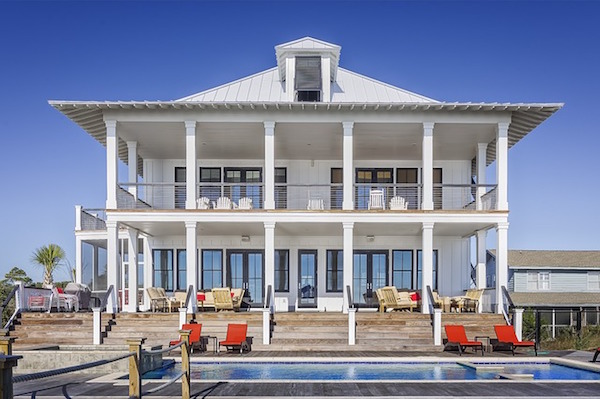
Many homeowners planning to remodel their kitchen or bathroom are often surprised when asked if they have plans for their project. When building a home addition, these plans become even more important. While a contractor may be able to draw a set of building plans, residential designers are specialists who are trained to use space efficiently and are educated in all the newest trends and available products available. Not only do residential designers draw plans, they also spend time with each client to determine their specific needs, lifestyles, priorities and budgets to design a custom room, addition or entire home.
Why seek out a residential designer to design my remodeling plans when contractors offer free design advice as part of their bid service?
Contractors generally tend to fill a client’s requests in the most straightforward manner possible, keeping things simple to avoid confusion or spending any more time than is necessary. Getting the job and building it are their top priorities. By contrast, the residential designer will sit down with you and work out your design puzzle in its entirety, with the emphasis on finding the best solution rather than the most obvious. Helping you understand the complexities of the project fully before it goes to bid (or worse, gets built) prevents misunderstandings and possible regrets about your choices.
Isn’t using a residential designer expensive?
Not at all. In addition to saving time and effort, it often saves you money. Most contractors are so thrilled to get well-documented, professionally designed plans that they often rebate some or all of the residential designer’s fees back to the consumer when they sign up with them. They recognize that detailed plans with full specifications and interpretive drawings result in a smooth-running project. Meanwhile, having hammered out what you want will save the contractor from the potential barrage of change-orders, time and money overruns, and bad feelings on both sides. Plus, if multiple bids are obtained, everyone is bidding on exactly the same materials, brands, and models.
Ready to start your residential design?
Find ProsSo, when should I bring in a residential designer?
Although ideally you’d meet fairly early in the project’s planning process, any time prior to construction is an appropriate time to contact a residential designer. You need to have a basic idea of what you’d like to accomplish, but skilled questioning by the designer to help determine even your hidden wants and needs is a very important part of the process. An incredible array of products is available and getting guidance from a professional saves you time, effort and money. Questions about your lifestyle, creative solutions, or suggestions for new/specialized products may even trigger your looking at your project in a whole different light.
What is the range of services offered?
It varies, but generally includes development of design options, working out the final floor plan with notes and specifications, a custom electrical plan, cabinet elevations, room isometrics, and door/window/appliance finish schedules are available as desired. Full working or permit-ready plans are also usually available.
What’s the difference between a residential designer and an architect?
An architect has more extensive and explicit training in residential design. Metaphorically speaking, if your residential designer has a bachelor’s degree, an architect has a Ph.D. For more extensive services that include assistance in awarding the bid, observing and inspecting the entire construction process, including guarding against faulty workmanship, you might consider looking for an architect, especially for larger or more complicated project. You might, then, assume that the architect will cost more to hire. Often, this is the case but not always. More than just training, how many years of experience and the demand for that individual’s services will influence how much each professional typically charges.
 How to Find & Hire an Architect
How to Find & Hire an Architect  Free Labor for Your Home Projects
Free Labor for Your Home Projects  What to Do When the Job Goes Wrong
What to Do When the Job Goes Wrong  Finding & Hiring a Draftsperson: What They Do, Questions to Ask
Finding & Hiring a Draftsperson: What They Do, Questions to Ask  8 Questions to Ask an Architect Before Hiring
8 Questions to Ask an Architect Before Hiring 

How do you make first contact with a residential designer?
Great article!! As a designer, these are perfect points I would share with a potential client. Contractors are great at building, but not necessarily at designing. It is my passion to see a space as a whole, listen to what the clients want and need for their space and bring all that information to reality. I have had great experience in the past working with contractors and they do appreciate having the design part detailed for them. It truly makes for a smooth project and ultimately a happy client.